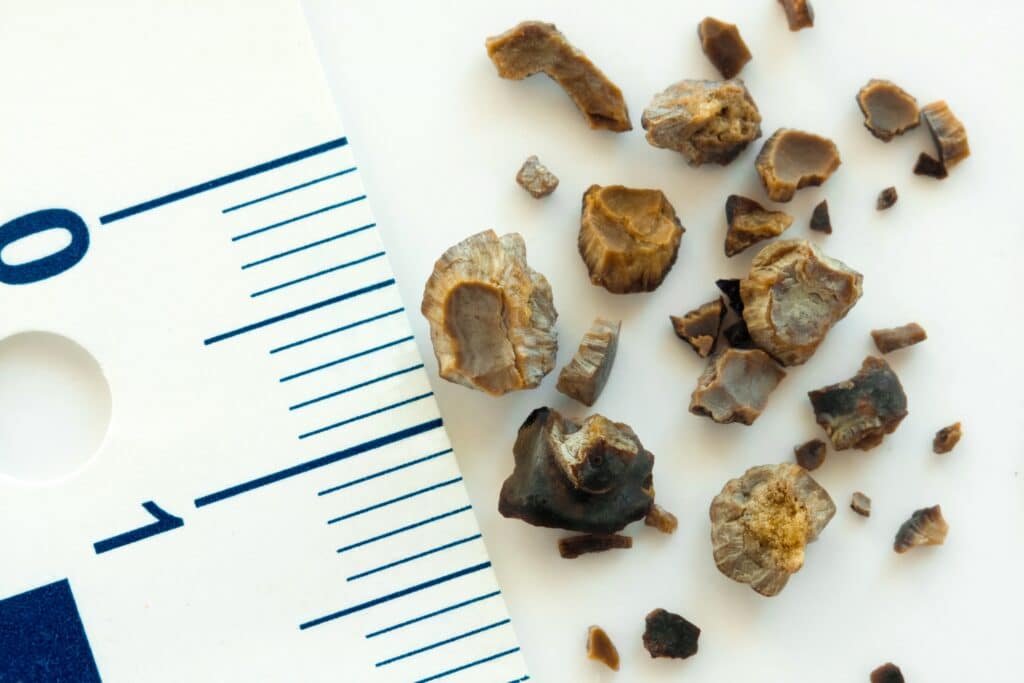Help! Do I Have a Kidney Stone?

Have you been dealing with sharp pain in your lower back, side, or abdomen? If so, you may have a kidney stone. The common, often excruciating condition affects millions of people each year. Your trusted team at Texas Advanced Renal Health will help relieve you of your discomfort and work with you to prevent future kidney stones. You can always count on us for care that exceeds your expectations.
What Are Kidney Stones?
Kidney stones are hard, crystalline objects that form in the kidneys or urinary tracts. They are made of different substances, including oxalate, calcium, and uric acid. Kidney stones vary in size, ranging from being as small as a grain of sand to as large as a golf ball.
Kidney stones can cause extreme pain as they move through the urinary tract. In some cases, they can get trapped and block the flow of urine, causing complications.
What Are the Causes of Kidney Stones?
Kidney stones typically form when minerals and other substances in your urine crystallize and stick together. Factors that increase the risk of kidney stone formation are dehydration, a family history, eating a lot of salt, sugar, or animal protein, or having medical problems such as gout or urinary tract infections.
What Are the Symptoms of Kidney Stones?
Symptoms of kidney stones may vary depending on their size and location. Here are some common signs to look out for:
- Sharp pain in the side, lower back, or abdomen
- Frequent or painful urination
- Blood in the urine
- Cloudy, foul-smelling urine
- Nausea and vomiting
- Profuse sweating
- Fever and chills
If you experience any of these symptoms, contact your trusted team at Texas Advanced Renal Health for an evaluation. Left untreated, kidney stones can cause a host of complications, including chronic kidney disease (CKD).
How Are Kidney Stones Treated?
Treatment will depend on the type of stone. Small kidney stones don’t usually cause severe symptoms and typically pass without invasive treatment. We recommend drinking as much as two to three quarts of water each day to help. Our team at Texas Advanced Renal Health may recommend alpha-blockers to relax the muscles in the ureter and help pass the kidney stones faster with less pain.
A kidney stone that’s too large to pass can cause bleeding, kidney damage, or ongoing urinary tract infections. We may recommend extracorporeal shock wave lithotripsy (ESWL). That involves using sound waves to break up your kidney stone into smaller pieces, allowing it to pass.
If that’s not an option, we may recommend ureteroscopy, which involves inserting a small tube with a camera into the urethra to locate and remove the stone. In rare cases, surgery may be the only option to remove large kidney stones.
Preventing Future Kidney Stones
One of the most effective ways to prevent kidney stones from forming is to drink plenty of fluids. You’ll also need to lower your consumption of oxalate-rich foods like sweet potatoes, spinach, nuts, and chocolate and maintain a low-salt, low-animal protein diet.
We may recommend medications to control the amounts of minerals and salts in your urine. The type of medication will depend on the type of kidney stones you tend to develop, such as uric acid, calcium oxalate, cystine, or struvite stones.
Kidney Stones Treatment Near Me in McKinney, TX
Visit Texas Advanced Renal Health to learn more about treating kidney stones and preventing future ones. Dr. Sadeddin and his team are committed to supporting your kidney health every step of the way. Call 972-548-4833 to schedule your appointment today!
